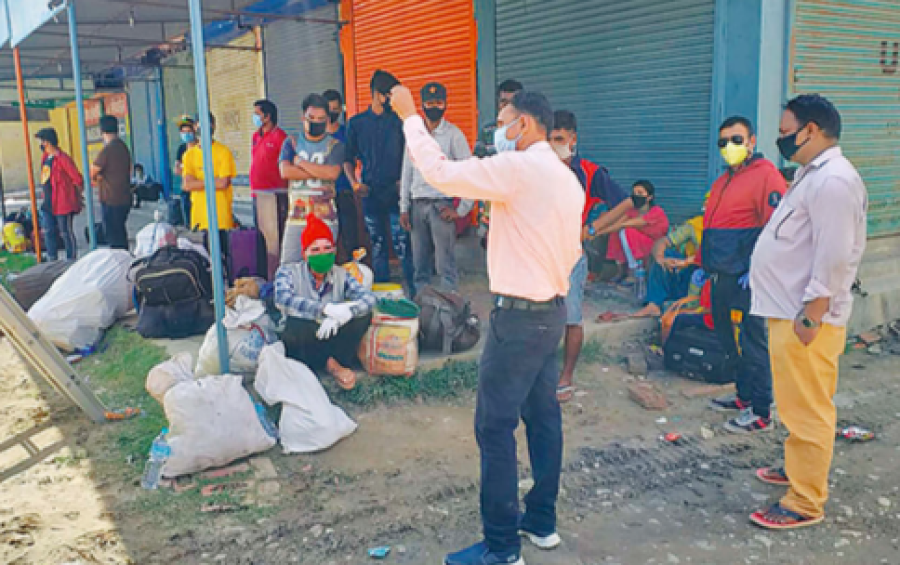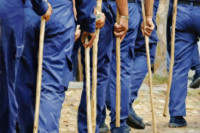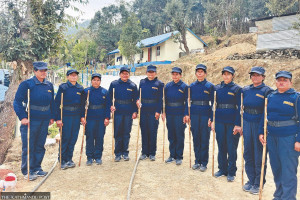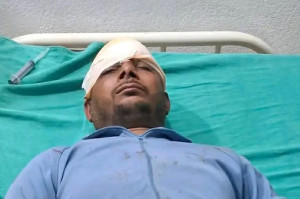Sudurpaschim Province
Malaria a threat to those in quarantine facilities in Sudurpaschim
Sudurpaschim Health Directorate has instructed health workers to test swab samples for both malaria and coronavirus in the quarantine facilities.
Arjun Shah
One of the individuals staying at a quarantine facility of Ward No. 4 in Ganyapdhura, Dadeldhura, was recently found suffering from malaria. Likewise, a person each in a quarantine facility at Laljhadi and in Krishnapur of Kanchanpur were also found to be infected with the mosquito-borne disease.
“When we tested recent returnees in various quarantine facilities of Dadeldhura and Kanchanpur, we found three individuals infected with malaria,” said Dr Gunaraj Awasthi, health director at the Sudurpaschim Health Directorate.
To contain the possible spread of malaria at these facilities, the directorate has instructed health workers to test swab samples for both malaria and coronavirus in the quarantine facilities.
“My office on Sunday directed all district health offices to run Covid-19 and malaria tests on individuals in quarantine. It is essential to identify malaria patients at quarantine facilities before sending them home,” he said.
The data of the Sudurpaschim Health Directorate shows there are more than 65,000 individuals staying in various quarantine facilities in the province. Health workers expect the number to rise, as people are still coming into Nepal from the border points at Gauriphanta in Kailali and Trinagar in Kanchanpur.
But since all quarantine facilities in the province are mismanaged, health workers fear there might be a possible outbreak of not just coronavirus but other diseases as well.
“Quarantine facilities are turning into a breeding ground for diseases. A lack of proper sanitation at these facilities is likely to give rise to other infections,” said Deepak Shah, the incharge at Tate Health Post in Bajura.
Dr Nirajandatta Sharama Paudel, a consultant physician at the Seti Provincial Hospital in Dhangadhi, said, “The risk of coronavirus spread was already high given the unmanaged quarantines, but now the threat of other communicable diseases is also looming large.”
Critical patients, children, senior citizens and pregnant and postpartum mothers are at high risk of contracting several communicable diseases in the poorly managed quarantine facilities, according to Dr Rupchandra Bishowkarma, chief at Bajura Hospital.
On Sunday, individuals staying at a quarantine facility in Shivapuri Dham of Ward No. 4 in Dhangadhi Sub Metropolis protested against the authorities, saying the facility was overcrowded and in a poor condition.
“The ward has quarantined 87 people in a three-room building with a common toilet at Jhali Basic School. It’s difficult to manage food and accommodation for all,” said Khadak Katuwal, a ward member at Kuldevmandu in Bajura.
The only alternative to prevent overcrowding at quarantine facilities is to advise people to self-quarantine at home, says consultant physician Paudel. “To ease the pressure on quarantine facilities, new returnees should be advised to stay in home isolation. There should be a polymerase chain reaction machine in all nine districts of the province with the manpower to test coronavirus and other communicable diseases,” he said. “If we don’t take the situation under control now, the province will be heading towards another health disaster.”
Mohan Budhaair in Dhangadhi contributed reporting.




 9.89°C Kathmandu
9.89°C Kathmandu















